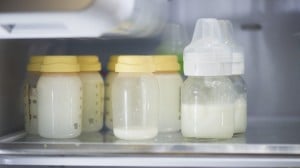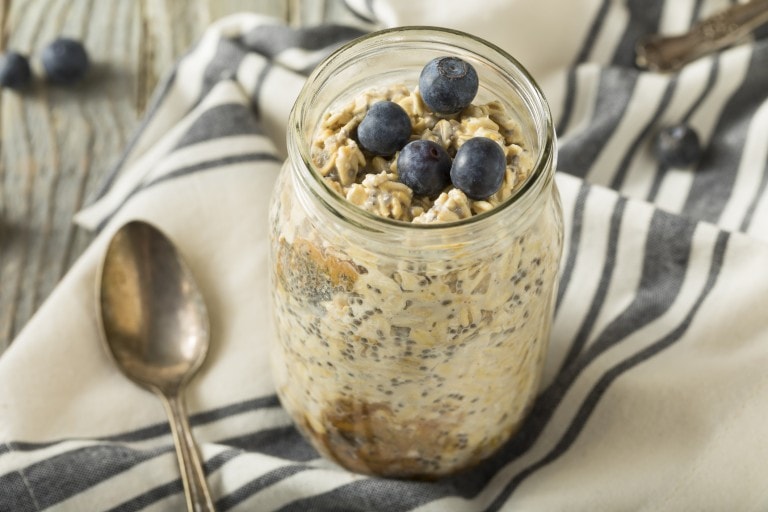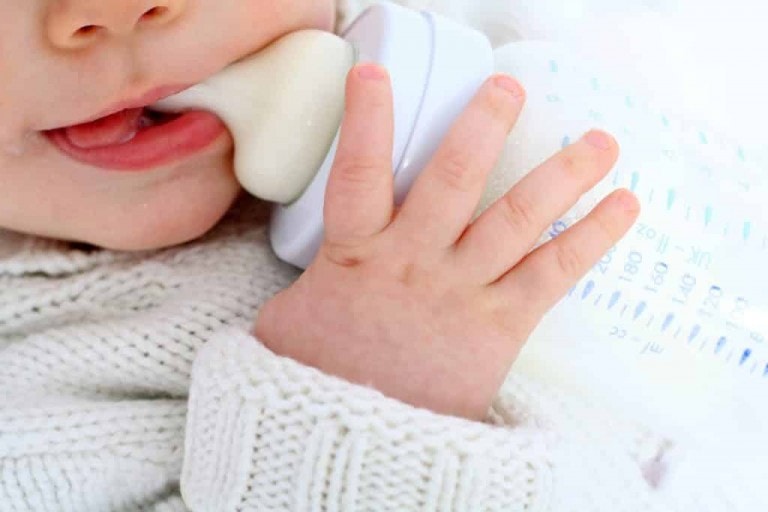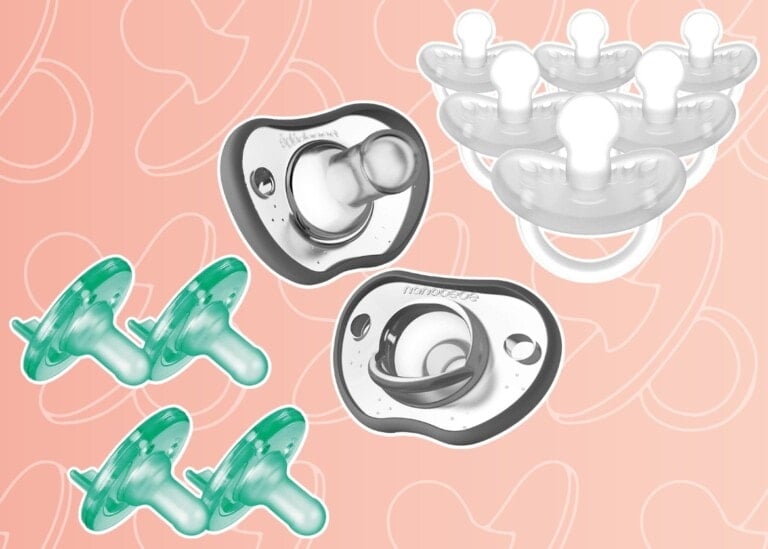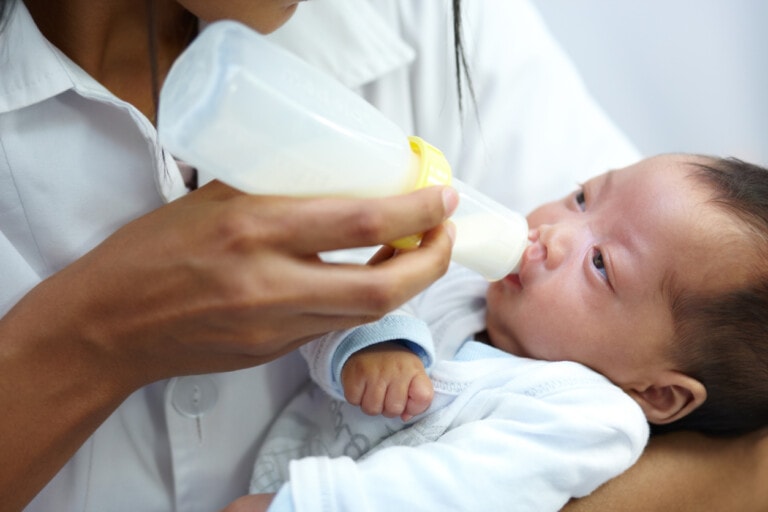If you have heard of colostrum, I’m sure you know it is also called “liquid gold.” It has this nickname for a good reason. This liquid is packed full of nutrients that all work to support your baby’s needs and offer protection. Colostrum may be tiny in volume, but it is mighty in its benefits to your baby.
What Is Colostrum?
After birth, the first milk available to your baby is called colostrum.1 This incredible source of nutrition comes in small doses but is precisely what the baby needs. It is a thick liquid packed full of protein, minerals, and antibodies.2,3 This early milk provides your newborn’s nutrition while also being an important source of infection protection.4 Antibodies pass from mom through the colostrum and are the key to the protection it offers.
Some may worry about the volume their baby is receiving with this liquid gold, thinking it is not enough. We are so used to seeing babies with bottles full of a large amount of milk or formula that it can be confusing. It is essential to know that baby’s stomachs are small. They do not need large quantities of food in the first days of life. Their stomachs will slowly grow. The small amount is just what your baby needs for nutrition as they are learning to breastfeed. In the first few days, it also allows your baby to learn more easily the basics of breastfeeding; sucking, swallowing, and breathing.5
When Does Colostrum Come In, and How Long Does It Last?
Here’s a cool fact: Women begin to produce colostrum during pregnancy.7 This usually begins around 12 to 18 weeks.5,6 Once a baby is born, a mother’s body has the colostrum ready and continues to produce it for about the first three to four days after birth.2,8,9 It is the first milk before a mother’s milk fully comes in.2 Isn’t it amazing what our bodies can do to prepare to meet our baby’s needs right at arrival? Because colostrum is being made during pregnancy, some women may even collect it in the last weeks before the baby arrives. Having colostrum available can be beneficial in some circumstances. This may be something to talk about with your healthcare team and should be discussed before trying on your own.10
What Does It Look Like?
As noted, colostrum is often referred to as “liquid gold.” This name comes from not only the benefits it offers but also the color. When expressed, colostrum milk is a yellowish, golden color.1 It is thick and may only be a few drops when expressed at first. Although colostrum may not be much in volume, it is still exactly what a baby needs.8
What Are the Benefits?
With so many nutrients and antibodies in colostrum, the benefits your baby receives from it are truly incredible. Some of these benefits include:
- Providing optimal nutrition6
- Supporting and building the immune system6
- Lining the intestines to keep away germs5
- Maintaining blood sugar levels6
- Helping baby pass meconium and lowering the risk of jaundice by assisting in getting rid of bilirubin through stooling6,9
Colostrum vs. Breast Milk: What’s the Difference?
Colostrum is the first milk a mother’s body makes. Within three to four days, colostrum will change from a thick, yellowish liquid into milk, which is thinner and whiter in color.2
Colostrum is found to be richer in protein and minerals than milk. In contrast, breast milk has more carbohydrates, sugar, fats, and certain vitamins. The higher fat, carbohydrate, and lactose levels of milk are necessary for supporting the baby’s growth and providing energy. Breast milk also offers more calories than colostrum.6
Should You Use a Colostrum Supplement?
If your baby is having a challenging time latching or cannot breastfeed for another reason, colostrum can be hand-expressed. It is always a good idea to ask your health team to assist with this process to show you the correct technique to use to help you be successful. Once expressed, the colostrum can be cup-fed, spoon-fed, or even syringe-fed to your baby. Getting the liquid goodness even when they can’t breastfeed will benefit your baby.11
Today, there are supplements on the market, commonly bovine colostrum. If you cannot express colostrum alone, this may be an option to explore. As with introducing anything to your little one, it is essential to discuss the introduction of a supplement with your medical team before using it. They can assist you in finding the best supplement for your little one if recommended.
With the vast health benefits that colostrum offers your little one, it truly deserves the nickname liquid gold. The nutrients and antibodies it provides will help protect your little one right from the start of life. If you have questions about colostrum, contact your healthcare team for support.



















